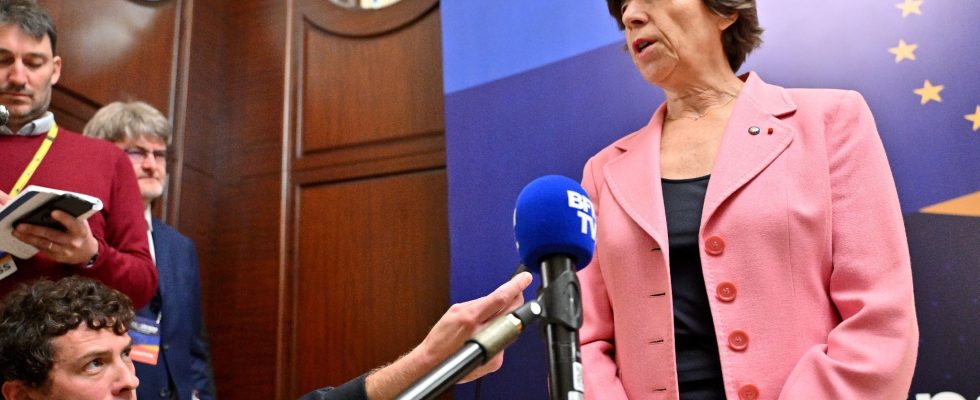The foreign ministers of the European Union met this Monday, October 2 in Kiev for a “historic meeting” aimed at drawing the lines of “sustainable support” for this country facing the Russian invasion and which aims to integrate the EU. Faced with a slow Ukrainian counter-offensive and fears of a decline in Western support for Ukraine, it is also a question of showing Russia that it “must not count” on the “weariness” of the European Union, explained French Minister Catherine Colonna. A message which was immediately contradicted by the Kremlin, convinced that this “weariness” will “increase in different countries”.
“I am summoning foreign ministers to Kiev today, the first meeting of all 27 member countries outside the EU,” announced EU foreign minister Josep Borrell on X (formerly Twitter), welcoming this “historic meeting” in Ukraine, “candidate country and future member”. Josep Borrell, however, clarified that it was an “informal” meeting which “is not intended to reach conclusions and concrete decisions”.
Speaking before the 24 ministers – those from Poland, Hungary and Latvia being absent for various reasons – President Volodymyr Zelensky estimated that Ukraine’s victory “directly depends” on cooperation between Kiev and its Western allies. “I am sure that Ukraine and the entire free world are capable of winning in this confrontation” with Russia, he said, asking the Europeans in particular for new sanctions against Iran, which supplies drones to Moscow , and to authorize the return of frozen Russian assets to finance reconstruction.
“Winter protection”
Receiving his counterparts, the head of Ukrainian diplomacy Dmytro Kouleba welcomed the holding of the meeting in kyiv, “within the future borders of the European Union”, according to him. Ukraine has been aiming to join the EU for years and was granted candidate status for membership in June 2022, but to take the next step, Kiev must still make progress, particularly in the fight against anti Corruption. Monday’s meeting in Kiev is an “exceptional diplomatic gesture”, underlined Catherine Colonna, who explained that the EU wants to demonstrate its “resolute” and “lasting” support for Ukraine “until it can win” against Moscow. It is a question of showing “that Ukraine is part of the European family” and of “also giving Russia the message that it must not count on our weariness”, underlined the French minister. “We will be here for a long time,” she promised.
The German minister, Annalena Baerbock, requested the establishment of a “winter protection plan” to enable Ukraine to cope with the bombing of its energy infrastructures, as during last year. This meeting is being held at a time when fears are emerging about the sustainability of Western support for Ukraine, which depends on arms deliveries and financial aid from Europeans and the United States.
“Weariness”
In Washington, an emergency agreement reached by the Senate this weekend to avoid a paralysis of the federal administration left aid to Ukraine out of the budget, which will have to be the subject of a separate bill. . American President Joe Biden then promised that the United States “would not abandon” Ukraine, and Kiev announced “working” with its main military and financial support so that this situation “does not prevent the flow of ‘help”. If the Kremlin estimated this Monday that Washington “will continue to get involved in this conflict”, it said it expected that “weariness of completely absurd support for the Kiev regime will increase in different countries”.
In Europe, Slovakia brought to the top of the legislative elections on Saturday a populist party which opposes continued aid to Ukraine. kyiv soberly said on Monday “to respect the choice of the Slovak people” and judged that it was too early to predict the consequences. Furthermore, the Hungarian Foreign Minister – whose country remained closest to Moscow in the EU – as well as his Polish and Latvian colleagues did not attend the meeting in Kiev, indicated a senior government official Ukrainian on condition of anonymity. Polish and Latvian diplomats are ill, he added.
Another source of aid for Ukraine, an International Monetary Fund (IMF) mission, the first in three years, visited Kiev to discuss a $15.6 billion program, the Prime Minister announced Minister Denys Chmygal.
